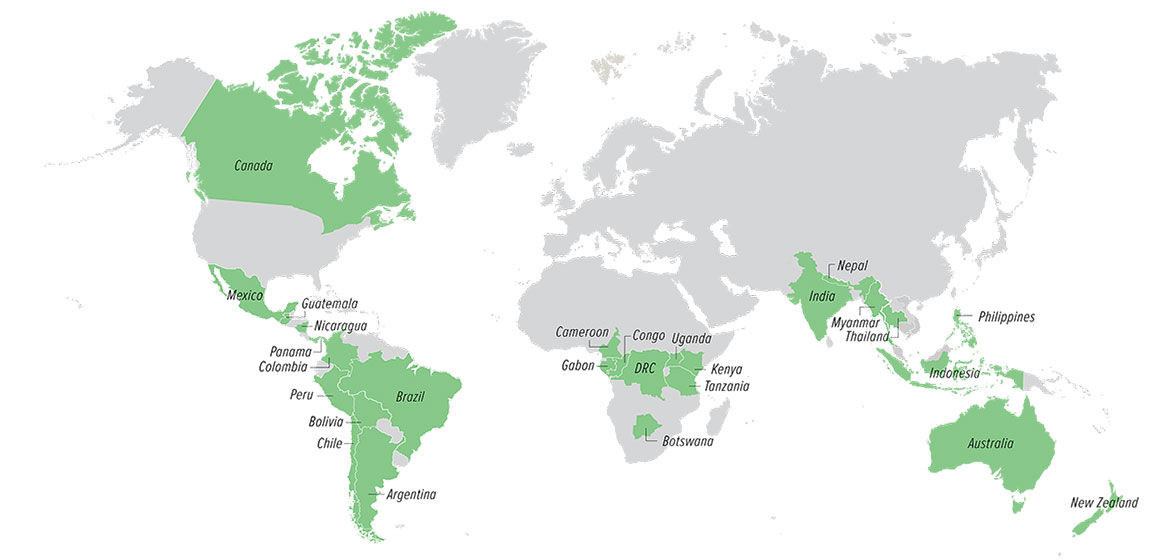
As one can learn about in Professor Marcelo Rodríguez's class, Non-Governmental Organizations (NGOs) often have valuable information resources about Foreign, Comparative, and International Legal (FCIL) research. For example, the Daniel F. Cracchiolo Law Library has a LibGuide about International Indigenous Resources, which has a section called "Other International Organizations," providing helpful links to NGOs researching indigenous rights, such as the Center for World Indigenous Studies and the International Work Group for Indigenous Affairs.
It may take some digging to find the right resource for your topic and find out who initially created a particular resource. Take for example the topic of Indigenous Rights in or near Environmentally Protected Areas (EPAs). The NGO, Indigenous Peoples Major Group for Sustainable Development, linked to an informative country profile resource cited by the scholars on the site, CorneredbyPAs.com, which was originally attributed to the Rights and Resources Initiative (RRI), a global coalition of 21 Partners and more than 200 collaborating international, regional, and community organizations dedicated to advancing the forestland and resource rights of Indigenous Peoples and local communities. This map and set of country profiles about EPAs is called, "Violations of Indigenous Peoples' and local communities' rights and steps towards reform in 27 countries." A map of the country profiles from this resource is below.

Source: 2018 by the Rights and Resources Initiative (RRI). This work is licensed under a Creative Commons Attribution License CC BY 4.0.
This resource about country profiles helped me understand what some of the key terms are that could narrow my search for further information and provided me with some helpful background information. Using terms about countries and Environmentally Protected Areas from this resource, I conducted my searches in Google Scholar, in conjunction with databases and other resources in the University of Arizona catalog, filtering for scholarly articles and e-books. I focused my searches on countries with more recent and frequent violations of Indigenous Rights. Once I started finding relevant articles, I then added phrases from those articles to my search terms, such as “fortress conservation,” which led to finding more relevant sources.
FCIL research often requires creative strategies to find the most relevant results by using the most on-point key terms. Rather than re-inventing the wheel, it makes sense to first review what research has already been conducted or compiled by NGOs. Best wishes to you in your research endeavors!
0 Comments.